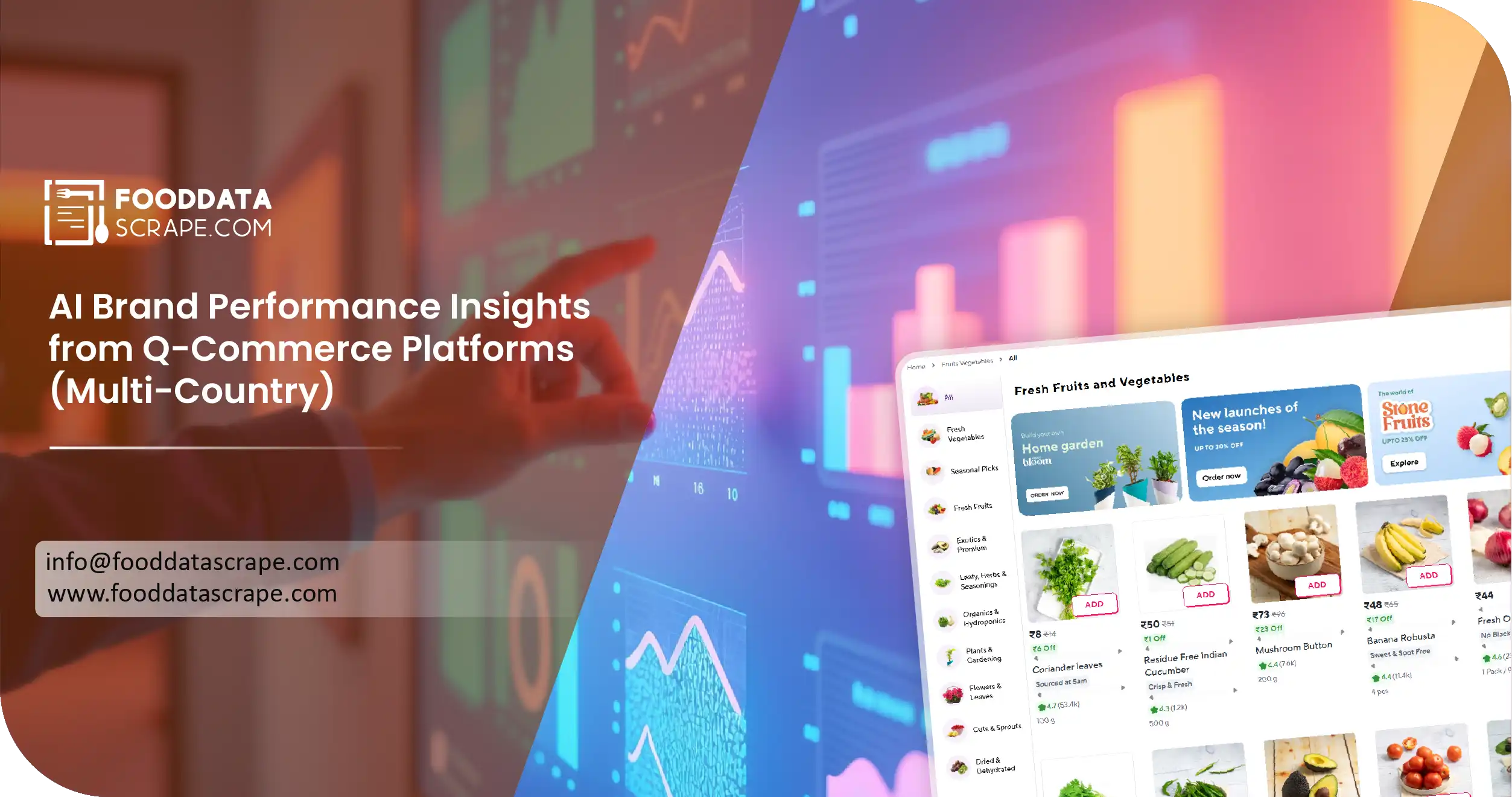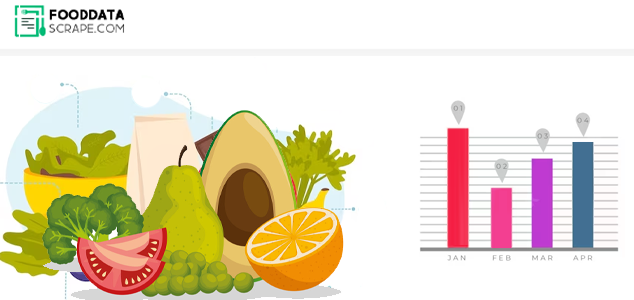The Challenges

Brand managers often grapple with several persistent challenges in the Q-Commerce space:
1. Real-Time Invisibility: Traditional data sources don’t offer up-to-the-minute insights into brand placement or availability.
2. Fragmented Ecosystem: Each country and platform has different structures, product taxonomies, and user experiences.
3. Manual Tracking Limitations: Manual tracking of digital shelf presence is not scalable and lacks consistency.
4. Inadequate Visibility Metrics: No unified scoring mechanism to evaluate how well a brand is performing across regions and competitors.
5. Reactive Decision-Making: Without proactive alerts, managers miss out on addressing out-of-stock issues or poor campaign performance.
These challenges hinder a brand’s ability to respond quickly to stock outages, competitor discounts, or missed promotional opportunities.
Food Data Scrape’s Strategic Solution
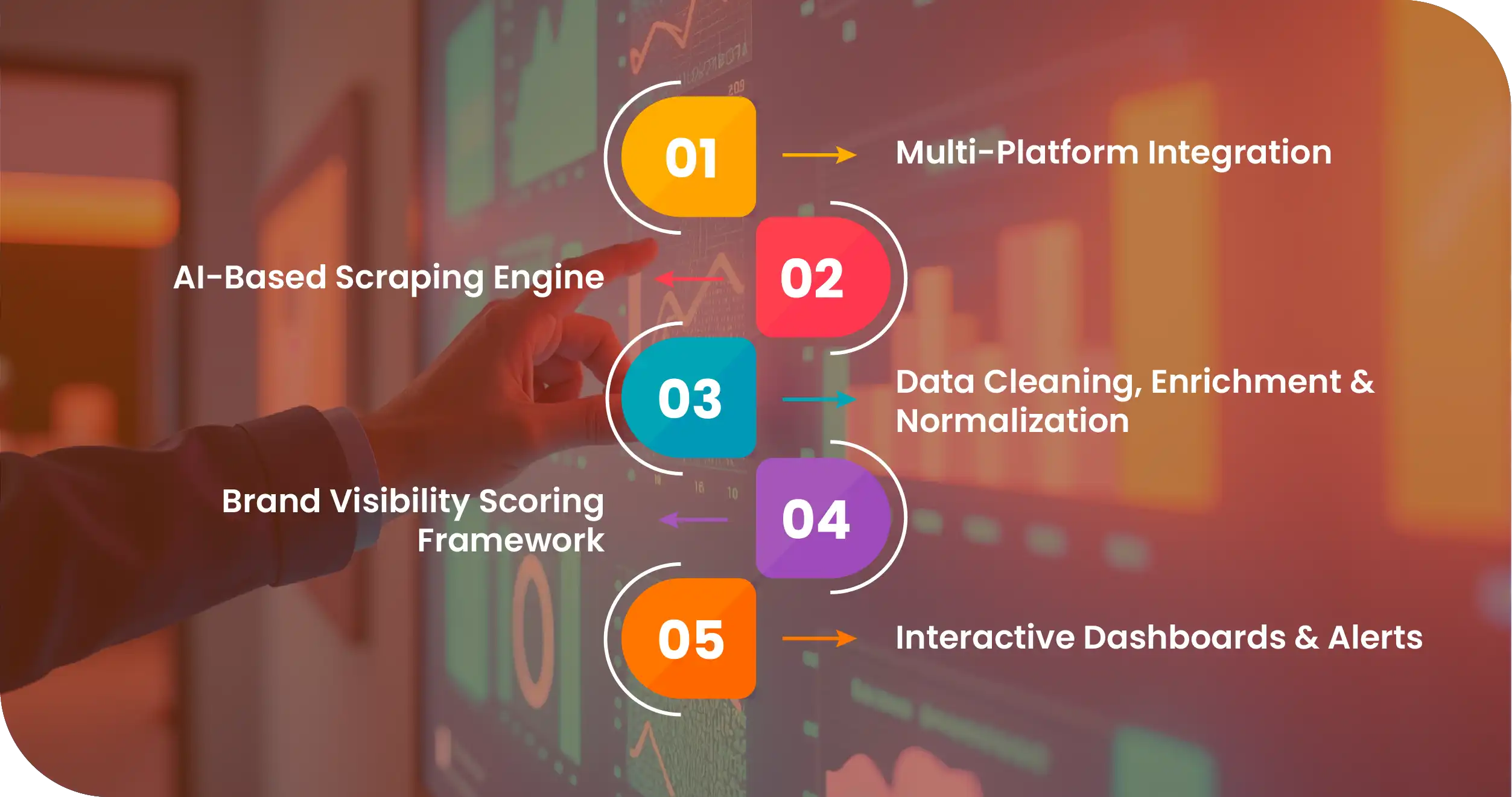
Step 1: Multi-Platform Integration
Food Data Scrape began by identifying key Q-Commerce platforms in five core markets:
- India: Blinkit, Zepto, Swiggy Instamart
- UAE: Talabat Mart, Carrefour Now
- Germany: Flink, Gorillas
- UK: Getir, Gopuff
- Singapore: RedMart, FairPrice
Each of these platforms had distinct architecture, delivery models, product categorizations, and user engagement patterns.
Step 2: AI-Based Scraping Engine
A custom AI engine was built using advanced NLP (Natural Language Processing) and Computer Vision models. Key data points captured included:
- Brand name and product variant
- Price, MRP, and real-time discount
- Banner placements and featured listings
- Page-wise product rankings
- Availability (In-stock/Out-of-stock)
- Product image detection and categorization
The AI engine was trained to recognize brand name inconsistencies (e.g., Pepsi vs. Pepsico), identify cross-listings, and flag private labels mimicking national brands.
Step 3: Data Cleaning, Enrichment & Normalization
The data was standardized across all platforms and countries:
- Converted all currencies to USD for comparison
- Harmonized product sizes and SKUs (e.g., “1L” = “1000ml”)
- Translated foreign language product names and descriptions
- Grouped duplicate entries and misspellings under a master SKU code
- Identified brand vs. private label vs. marketplace-exclusive SKUs
Step 4: Brand Visibility Scoring Framework
Food Data Scrape created a proprietary Brand Visibility Index (BVI) using multiple weighted factors:
- Shelf Rank Score: Based on which page the product appeared
- Banner Presence Score: Featured placement in app banners or carousels
- Availability Score: % uptime or stock availability
- Discount Visibility: Promotion frequency and % compared to competitors
- Coverage Score: Number of cities or pin codes listed in
This enabled the brand to rank performance not just by sales, but by presence and prominence.
Step 5: Interactive Dashboards & Alerts
- Real-time dashboards built using Power BI and Tableau
- Filters by country, category, SKU, and date range
- Drill-down capability to city and pin code level
- Email/SMS alerts for sudden stockouts, lost banner placements, or unusual discount spikes
- Historical trend graphs showing visibility changes over time
Sample Data Snapshot
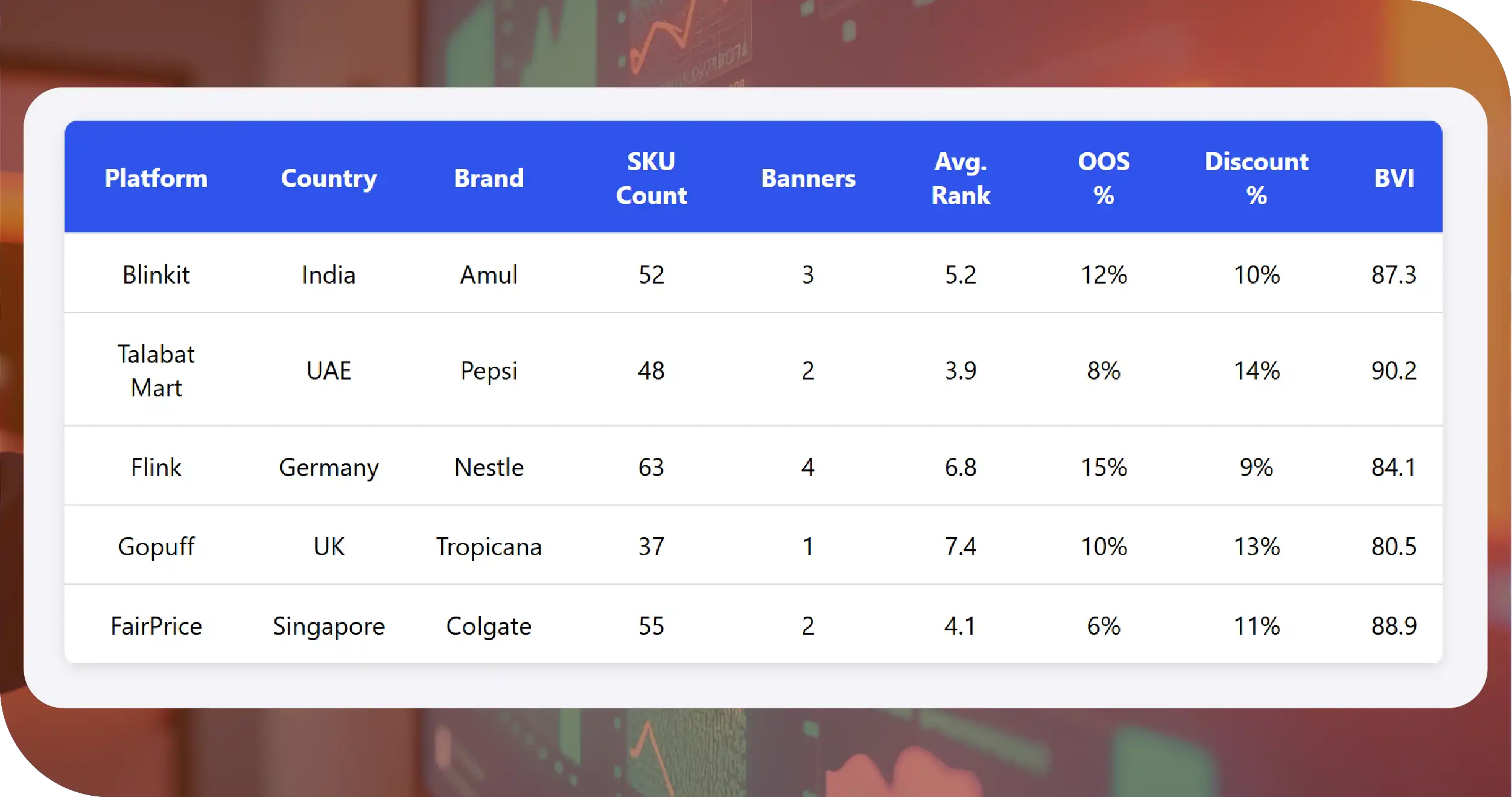
Business Impact
1. Unified Global Visibility
The client could now monitor visibility by region, brand, and SKU in a single dashboard. This enabled better global strategy alignment and country-level performance reviews.
2. Improved Campaign Execution
By tracking banner placements and in-app promotions, the marketing team could measure ROI of digital campaigns and take corrective action in real-time.
3. Enhanced Inventory Optimization
Alerts for out-of-stock SKUs allowed supply chain teams to quickly restock high-performing regions, preventing revenue loss.
4. Competitive Benchmarking
Using the same framework, competitor brands were also tracked and scored. This provided a relative measure of performance across each category and platform.
5. SKU Rationalization
With visibility into poorly ranked or zero-visibility SKUs, the client rationalized their product portfolio and focused only on high-visibility listings.
Real Use Case: Amul on Blinkit India
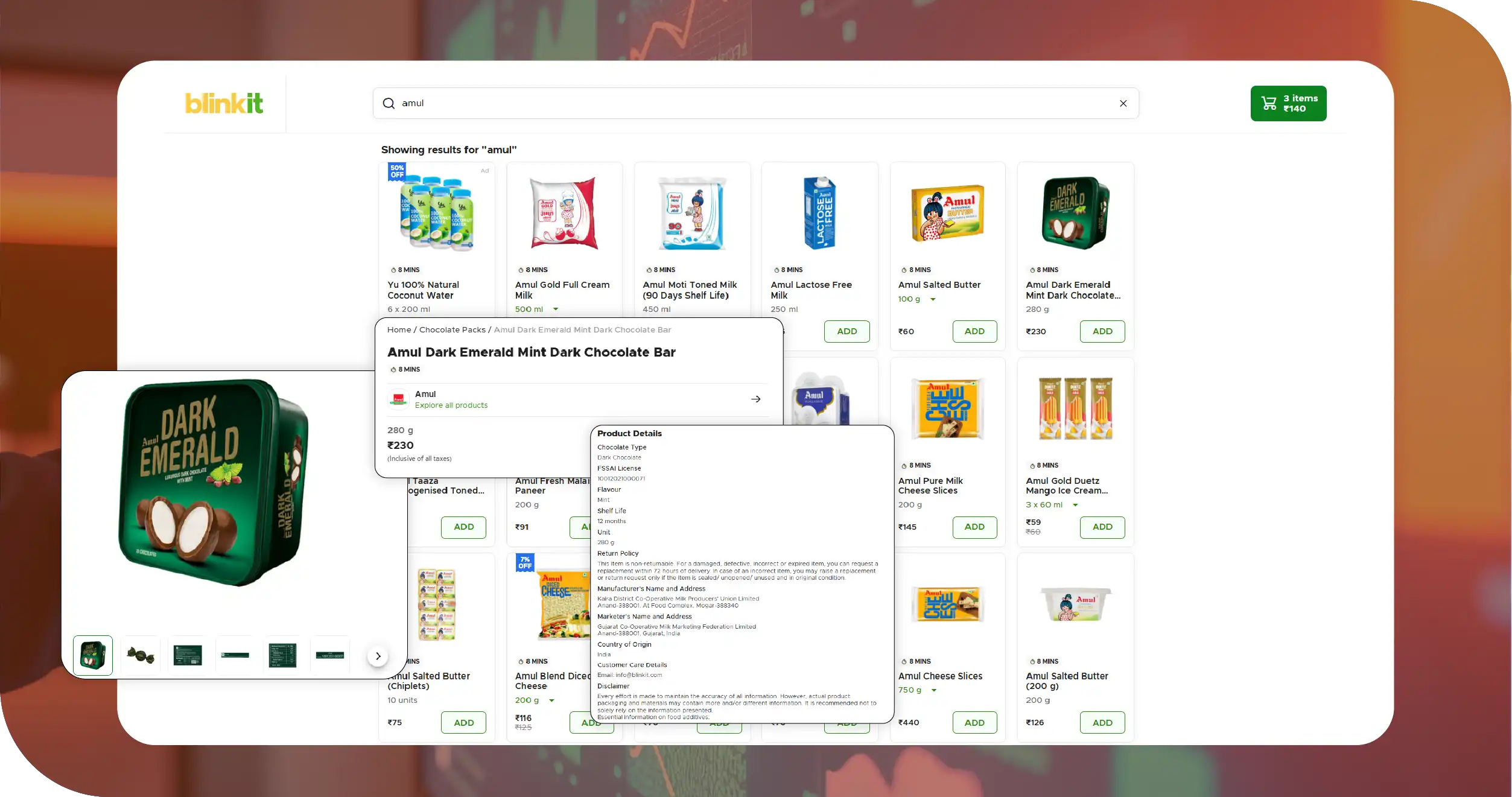
Amul’s presence across Blinkit’s cities was fragmented. The dashboard showed: - 12% SKUs were out of stock - Banner promotions were absent in Tier-2 cities - Two variants had zero visibility despite being top sellers in retail
Action Taken: - Redistributed inventory to underperforming cities - Launched banner campaigns for underrepresented SKUs - Optimized pricing to compete with local private labels
Result: - Brand Visibility Index (BVI) jumped from 76.5 to 87.3 in one month - Sales improved by 12% QoQ in key markets
Client’s Testimonial
“Food Data Scrape’s AI-based Q-Commerce monitoring transformed how we manage brand visibility across global platforms. The real-time dashboards and strategic alerts help us stay ahead in every market.”
— Head of Digital Strategy, Global FMCG Brand
Competitive Advantage of Food Data Scrape
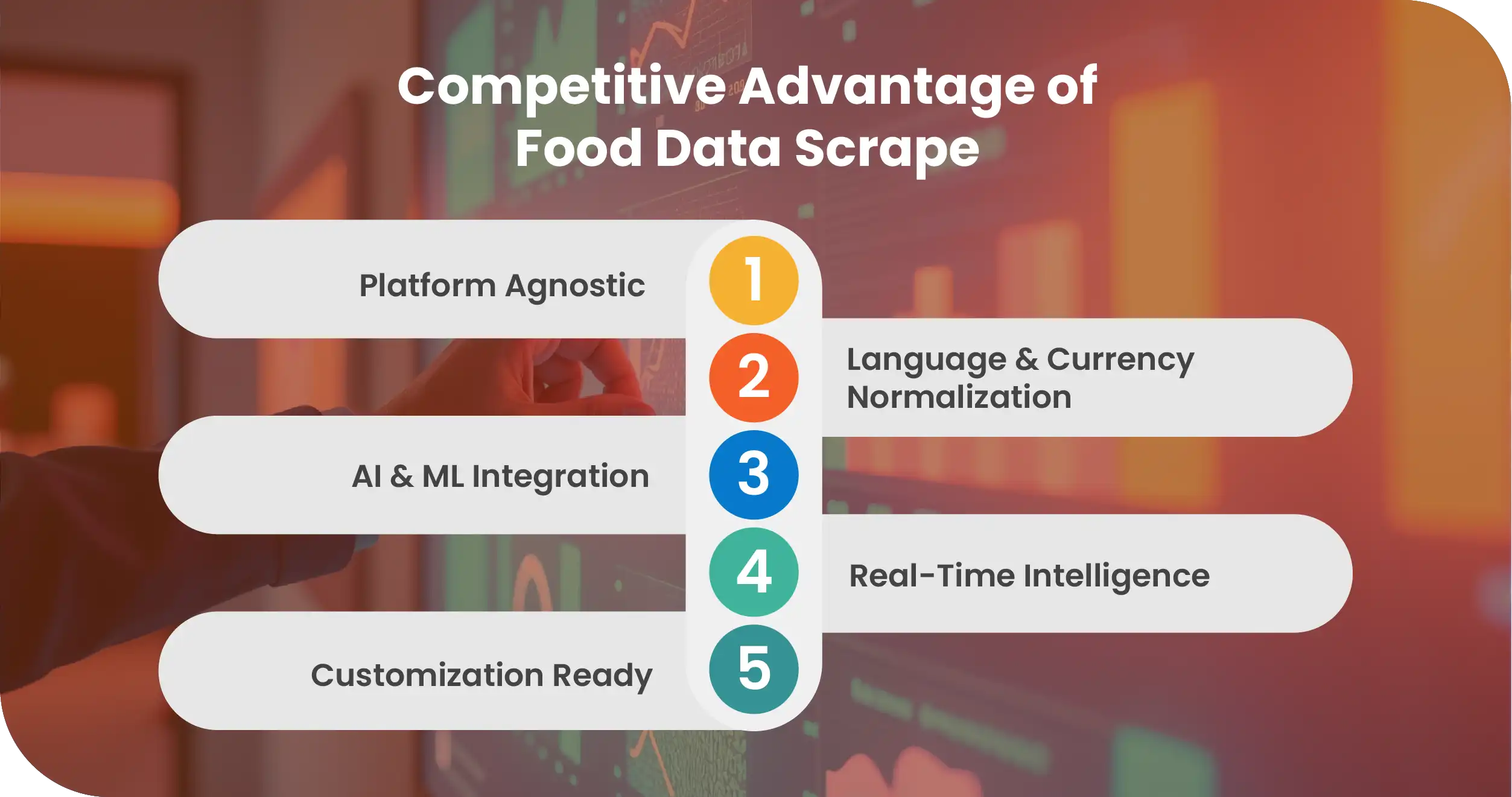
- Platform Agnostic: Works with any Q-Commerce or e-commerce app/API
- Language & Currency Normalization: Localized for multi-country use
- AI & ML Integration: Handles duplicate detection, brand variance, and image-based SKU mapping
- Real-Time Intelligence: 24x7 scraping with alert thresholds
- Customization Ready: Tailored dashboards for each stakeholder (marketing, supply chain, sales)
Final Outcomes:
In the hyper-competitive world of Q-Commerce, brand visibility is currency. With consumers making split-second decisions, your presence on the first screen, your stock availability, and your placement in banner carousels can make or break conversions. To stay ahead, brands are increasingly relying on Quick Commerce Data Intelligence Services to track, measure, and optimize their digital shelf performance in real time.
Food Data Scrape’s AI-driven brand visibility reports deliver more than data — they provide actionable intelligence. Whether it’s reclaiming lost shelf share, optimizing ad spend, or responding to a competitor’s flash sale, our insights ensure brands don’t just compete — they lead.
If you’re a global brand looking to unlock the full value of Q-Commerce data, Food Data Scrape is your trusted partner for real-time, AI-powered insights.
Request a free visibility audit of your brand on Q-Commerce platforms across India, UAE, Germany, UK, and Singapore.






















































































